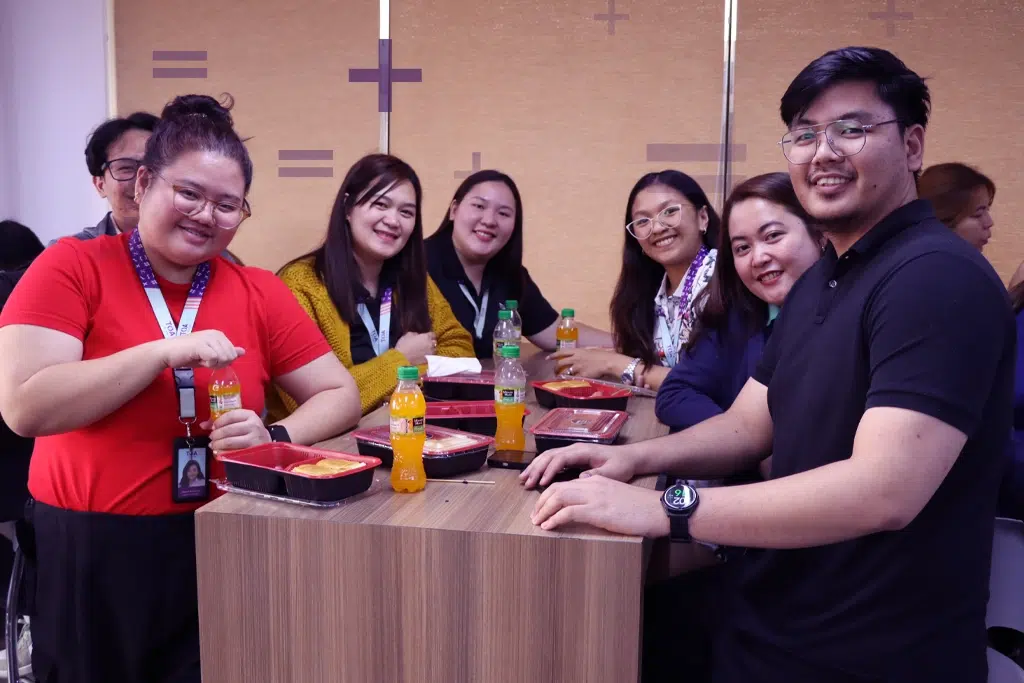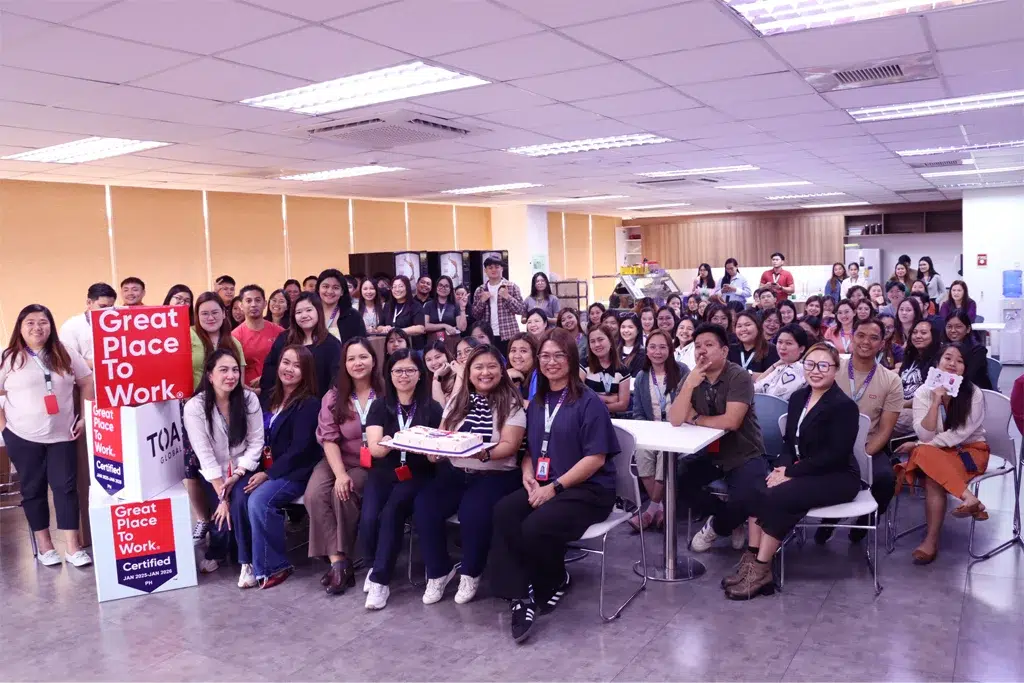Ever wondered what it’s like working with Filipinos?
It’s normal to have questions about partnering with Filipino staff accountants, especially when you’ve never worked with offshore professionals before.
If you’re curious to see how a Filipino team would fit in with your local team, this comprehensive breakdown of Filipino work culture, traditions, and values could help you make up your mind.
Working with Filipinos: An Overview

Known globally for their hard work and reliability, Filipino employees also practice long held traditions, like pakikisama or fellowship, and bayanihan or mutual support.
The value of bayanihan has endured the test of time. Beginning as “helping neighbors in times of need”, it has since evolved in definition, especially in the wake of the digital age.
But these values are just some of many more traditions, practices, and quirks that make Filipino work culture unique.
Here’s everything you need to know to understand Filipino employees better:
1. Filipinos are just like any other worker

In many ways, Filipinos are unique (which we will talk more about as we go on), but they’re just like other types of workers, too. It’s important to treat your Filipino accountants like you would your local staff — don’t make them feel like they’re different from the rest of the company.
Accustomed to Western culture and values, Filipinos can integrate seamlessly with your local team especially if you make them feel like they belong. But you can also take proactive steps to ensure your Filipino team members warm up quickly with your local staff.
Start by having one-on-one meetings with everyone. With these exchanges, you can gain a better understanding of each of your team members’ strengths, weaknesses, needs, and goals. Make strategic task assignments so that everybody shines. If you want to foster collaboration among them, have 2 or more people working on the same task.
Filipinos are adaptable and can quickly adjust to their colleagues, superiors, and workplace culture. If you acknowledge and respect the nuances in communication styles between your local and Filipino employees, you can ensure harmonious professional relationships in your firm.
Related Reading:
6 Disadvantages of Outsourcing Accounting Services for Your Firm
2. Filipinos are sociable, appreciative, and empathetic

Traits like friendliness, warmth, and approachability are like second nature to Filipinos.
They love to build relationships beyond their office cubicles, fostering a friendly and positive work environment.
Filipino employees also often show genuine interest in their colleagues’ wellbeing. So don’t be surprised if they ask about your professional and personal life — that is just their way of connecting with you on a deeper level.
In return, your staff accountants would appreciate it if you actively engaged with them and addressed their grievances and concerns to the best of your ability.
You may also consider initiating team building activities to help your staff accountants improve their skills, define their roles better, develop teamwork, and reward them with time for leisure as well.
After all, engaging in teamwork can increase staff morale, boost employee satisfaction, and promote employee retention as well.
Related Reading:
Why Accountants are Quitting (and How to Stop Them)
3. Filipinos are family oriented

Most Filipinos are family oriented. In the workplace, the Filipino culture of close family ties cuts across age, gender, and ethnicity.
If they’re treated well, your staff accountants will treat you like family.
Don’t be surprised if your Filipino employees add you on Facebook or Instagram. Your Filipino staff will consider you part of their circle, especially if you show them kindness and compassion to them.
To strengthen rapport and develop deeper relationships, consider visiting your offshore Filipino team once or twice a year.
Related Reading:
Your Ultimate Guide to Building the Best Accounting Team Possible
4. Filipinos have high English proficiency

The Philippines has a high level of English proficiency. According to the 2024 English Proficiency Index (EPI), the Philippines is 22nd out of 116 countries in the 2024 EPI, with a score of 570.
Largely due to their US-modeled educational system, English is used as the medium of instruction in schools. This infuses into both government and corporate settings.
Since accounting involves complex financial reports and sensitive data with clients and colleagues globally, effective communication in English is crucial and integral to your business.
Having a global team of fluent English speakers can help your firm effectively communicate financial information, accurately relay numbers and figures, and establish long-lasting professional relationships with international clients, and help ensure compliance with international financial reporting requirements, too.
Related Reading:
Engagement Letter Do’s and Don’ts for Accounting
5. Filipinos look up to their superiors

The Filipino work culture is deeply rooted in respect and deference to authority. This stems from their strong family values where elders are highly regarded and respect is ingrained from childhood.
In the workplace, this translates to professionalism, courtesy, and loyalty toward their superiors.
One of the most prominent manifestations of this Filipino tradition is the use of honorifics and polite language. Filipino employees commonly address their superiors as “sir” or “ma’am.”
If you’re used to the more casual nature of Western workplaces, where everyone calls each other by their first name, this level of politeness might take some getting used to.
But since Filipinos are also adept with Western practices and culture, it won’t be too hard to get them to drop the honorifics.
6. Filipinos prefer a calmer, less direct tone

In Western culture, straightforwardness is appreciated and even celebrated. Freedom of speech is a highly regarded value among Western countries, and honesty in feedback is rewarded with better output.
Filipinos, on the other hand, often communicate in an indirect and diplomatic manner, avoiding confrontation to maintain workplace harmony.
While loyalty and dedication are entrenched in their culture, Filipino employees tend to show more gratitude and commitment to leaders who use a more positive approach to providing insights and feedback.
As a leader, this communication approach makes building camaraderie, teamwork, and strong employer-employee relationship so much easier.
Some things you can watch out for include facial expressions, body language, or any non-verbal cues.
Related Reading: Accountant Soft Skills Your Employees Need to Have
7. Filipinos prefer clear and specific instructions

Even if it’s not the case in the entirety of Filipino work culture, staff from the Philippines are mostly non-confrontational — they don’t like letting their superiors down.
With that said, you should encourage a work culture that welcomes questions or clarifications, so any possible misunderstandings are ironed out from the get-go.
It’s also ideal to make clearly outlined expectations to help your Filipino employees demonstrate their commitment to producing high-quality work better.
8. Filipinos go the extra mile

Filipinos don’t cut corners and call it a day.
Beyond their career advancement goals, Filipinos are service-oriented, striving to create the best output possible.
For both personal and professional growth, Filipino staff accountants go above and beyond their tasks to execute your vision and help you fulfill your mission.
This strong work ethic is hard to come by, especially amidst a growing public disinterest in accounting.
Filipino staff accountants are the solution your firm needs to address the global concern on accounting talent shortage.
Related Reading: The Creative Solution to Beating the Accountant Shortage in the U.S.
In Sum: Working with Filipinos in Accounting

In general, Filipino staff accountants are sociable, appreciative, and family oriented, thriving in a positive work environment that nurtures these cultural traits.
Filipino staff accountants also excel in English, respect hierarchy, and go the extra mile.
Sure, there are differences when it comes to their communication styles with their superiors or their valued work traditions like team building activities, but in essence, they’re as talented and globally competent as onshore employees.
Ready to Partner with Filipino Staff Accountants?
The Philippines has long been a top choice for global talent solutions. Especially in the field of accounting, Filipino talent is considered elite and widely sought-after.
From billing analysts to auditors and staff accountants, Filipino accounting professionals excel both within and beyond their roles. Just ask TOA Global founder and chairman, Nick Sinclair!
“I think for everyone in this industry — particularly if you’re an accountant — the future is very bright…we’ve seen how brilliant accountants are in the Philippines, [and] we want to amplify that in the global stage.”
Need to Partner with the Best Filipino Staff Accountants Possible?
If you want to experience the spirit of Filipino teamwork in all its glory, you need to find the right talent solutions provider.
TOA Global (formerly known as The Outsourced Accountant) is a leading provider of top-quality accounting staffing solutions to firms worldwide. From tax specialists to auditors to staff accountants, our proven strategies deliver top-notch results to those who need sustainable, long-term accounting help.
But don’t just take our word for it — see this client success story out of our 1,200 satisfied clients from all over the world.





























